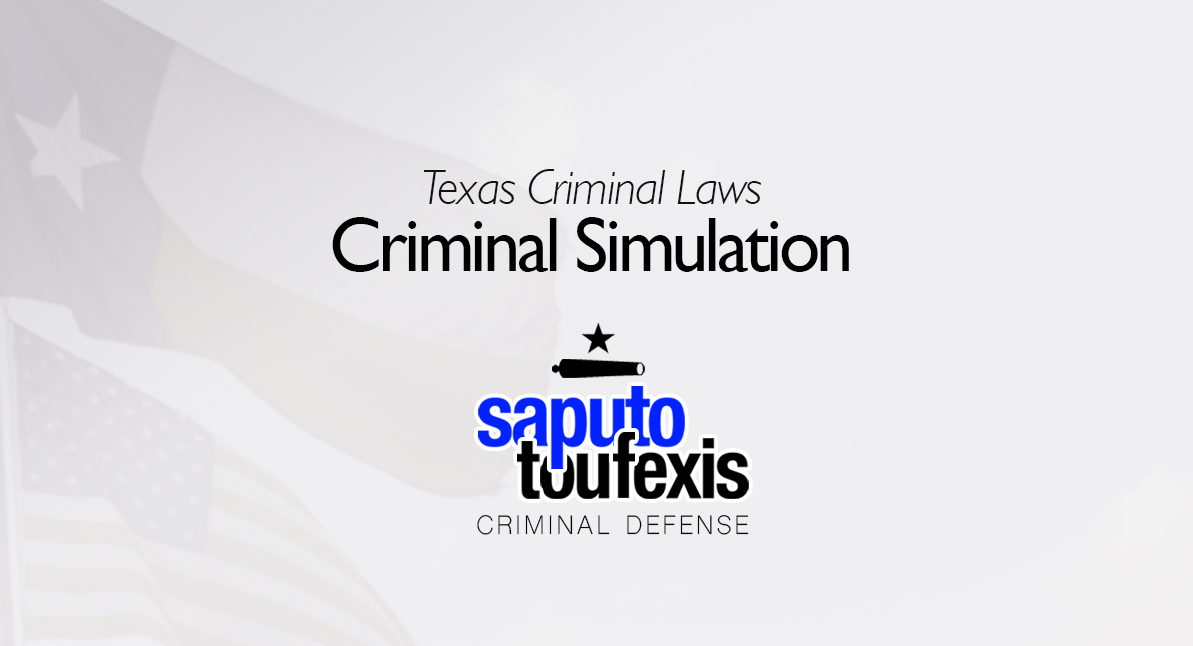The Texas Criminal Simulation law makes it illegal to make, possess for distribution, or falsely authenticate objects that are misrepresented as having value because of age, antiquity, rarity, source, or authorship.
FAQs about the
Criminal Simulation law in Texas
- What is the current Texas law about Criminal Simulation?
- What is the penalty for a Texas Criminal Simulation offense?
- How can I be charged with a Criminal Simulation offense in Texas?
- What is the statute of limitations for Criminal Simulation in Texas?
- Can you get probation for Criminal Simulation in Texas?
- What level of crime is Criminal Simulation in Texas?
The law is designed to prevent and penalize individuals who engage in fraudulent activities related to objects, including creating deceptive items, possessing them with the intent to distribute, or providing false authentication or certification. The focus is on activities intended to defraud or harm others by misrepresenting the value or authenticity of objects.
Have you been charged with Criminal Simulation? Contact us today to discuss legal representation.
or Text or Call (888) 239-9305
The Criminal Simulation law applies only if you intended to harm or defraud someone.
The Texas legislature codified this criminal offense in Texas Penal Code Section 32.22. This law has not been amended since 1993.
However, in 2025 the legislature extended the limitations period for felony versions of this offense together with all felonies in Chapter 32 to seven years effective for offenses occuring on or after September 1, 2025.
The Penal Code classifies the Texas Criminal Simulation law under Title 7 “Offenses Against Property,” Chapter 32 “Fraud.” Learn more about the Texas offense of Criminal Simulation below.
What is the current Texas law about Criminal Simulation?
AV Preeminent Texas lawyer Paul Saputo provides the current law defining Criminal Simulation in Penal Code Section §32.22, as follows:[1]
(a) A person commits an offense if, with intent to defraud or harm another:
(1) he makes or alters an object, in whole or in part, so that it appears to have value because of age, antiquity, rarity, source, or authorship that it does not have;
(2) he possesses an object so made or altered, with intent to sell, pass, or otherwise utter it; or
(3) he authenticates or certifies an object so made or altered as genuine or as different from what it is.
What is the penalty for a Texas Criminal Simulation offense?
A conviction for Criminal Simulation in Texas is punished as a Class A misdemeanor,[2] with a maximum possible fine under Texas state law of up to $4,000 and jail time of up to one year.
How can I be charged with a Criminal Simulation offense in Texas?
You can be charged with Criminal Simulation in Texas if the state’s attorneys believe that each of the elements of §32.22(a) as described in the section above have been met.
What is the statute of limitations for Criminal Simulation in Texas?
As a misdemeanor, Criminal Simulation charges have a two-year limitations period.[3]
Can you get probation for Criminal Simulation in Texas?
The Texas Code of Criminal Procedure allows both judges and juries to grant probation for Criminal Simulation, and judges are also allowed to accept deferred adjudication plea deals.[4]
What level of crime is Criminal Simulation in Texas?
The Penal Code classifies the punishment for Criminal Simulation as a Class A misdemeanor.
Learn more about the penalty range for this offense in the section above.
Legal References:
^1. Texas Penal Code §32.22. This law is current as of 2025.^2. Texas Penal Code §32.22(b)^3. See Code of Criminal Procedure 12.02(a)^4. See Chapter 42A, Texas Code of Criminal Procedure, Art. 42A.054, Art. 42A.056, Art. 42A.102










